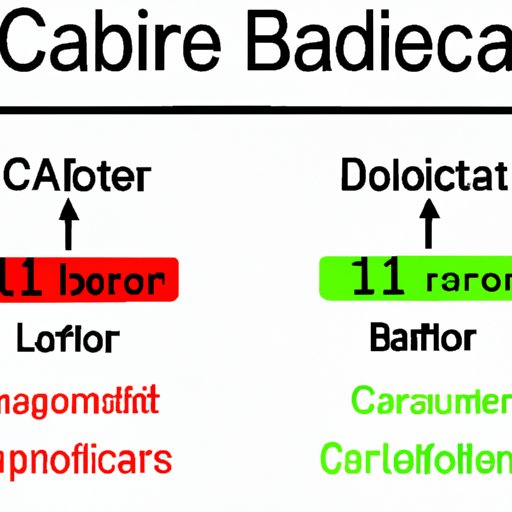
Introduction
If you’re on a weight loss journey, one of the most common questions you might ask is: how many calories should I be eating to lose weight? It can be an intimidating question to tackle, but understanding caloric intake is a crucial step in achieving a successful weight loss journey. In this article, we’ll delve into the science of weight loss, explain the importance of caloric intake, and discuss ways to determine the ideal caloric intake for your weight loss goals.
The Science of Weight Loss: Understanding the Importance of Caloric Intake
Before we delve into how many calories you should be eating to lose weight, it’s important to understand the fundamentals of weight loss. Calories refer to the amount of energy provided by the food we eat. To lose weight, you need to be in a caloric deficit, which means you are burning more calories than you are consuming. When you are in a caloric deficit, your body uses stored fat as fuel, making you lose weight over time.
From Counting to Cutting: How Many Calories Should You Really Eat to Lose Weight
Basal metabolic rate (BMR) is the amount of energy your body needs to function while at rest. It is influenced by various factors such as age, gender, weight, height, and activity level. To lose weight effectively, you’ll need to create a caloric deficit by consuming fewer calories than your BMR. The caloric deficit required to lose weight varies between individuals because everyone’s BMR is unique.
Finding Your Sweet Spot: Discovering Your Unique Calorie Needs For Effective Weight Loss
Total daily energy expenditure (TDEE) is the total amount of energy you burn in a day, which includes your BMR plus any physical activity you do. Once you have calculated your TDEE, you can create a caloric deficit by setting a target calorie intake below your TDEE. Typically, a moderate caloric deficit of 15-25% of your TDEE is recommended for healthy and sustainable weight loss.
Losing Weight without Starving Yourself: The Benefits of a Moderate Caloric Deficit
While it might be tempting to drastically cut calories, extreme caloric restriction can be dangerous for your health. Additionally, starving yourself can lead to binge eating, making it harder to lose weight in the long run. A moderate caloric deficit, on the other hand, can help you lose weight at a steady pace while also feeling satiated and energized. Choosing high-fiber, nutrient-dense foods can help you stay full while consuming fewer calories.
Calorie Counting 101: A Comprehensive Guide to Determining the Right Caloric Intake for Your Weight Loss Goals
Calorie counting is a common method of tracking your food intake. Many apps and tools are available to help you keep track of your caloric intake, including MyFitnessPal, Lose It!, and Cronometer. It’s essential to track your food accurately and consistently as this can help you stay accountable and make adjustments as necessary.
Conclusion
Knowing how many calories you should be eating to lose weight is a crucial step in your weight loss journey. By understanding your BMR and TDEE, you can determine the right caloric intake for your weight loss goals. Remember that a moderate caloric deficit can help you lose weight sustainably and healthily while also remaining satiated and energized. With the right tools and mindset, you can succeed in achieving your weight loss goals.




